Council unanimously approves 'fiscally responsible' 2023 budget
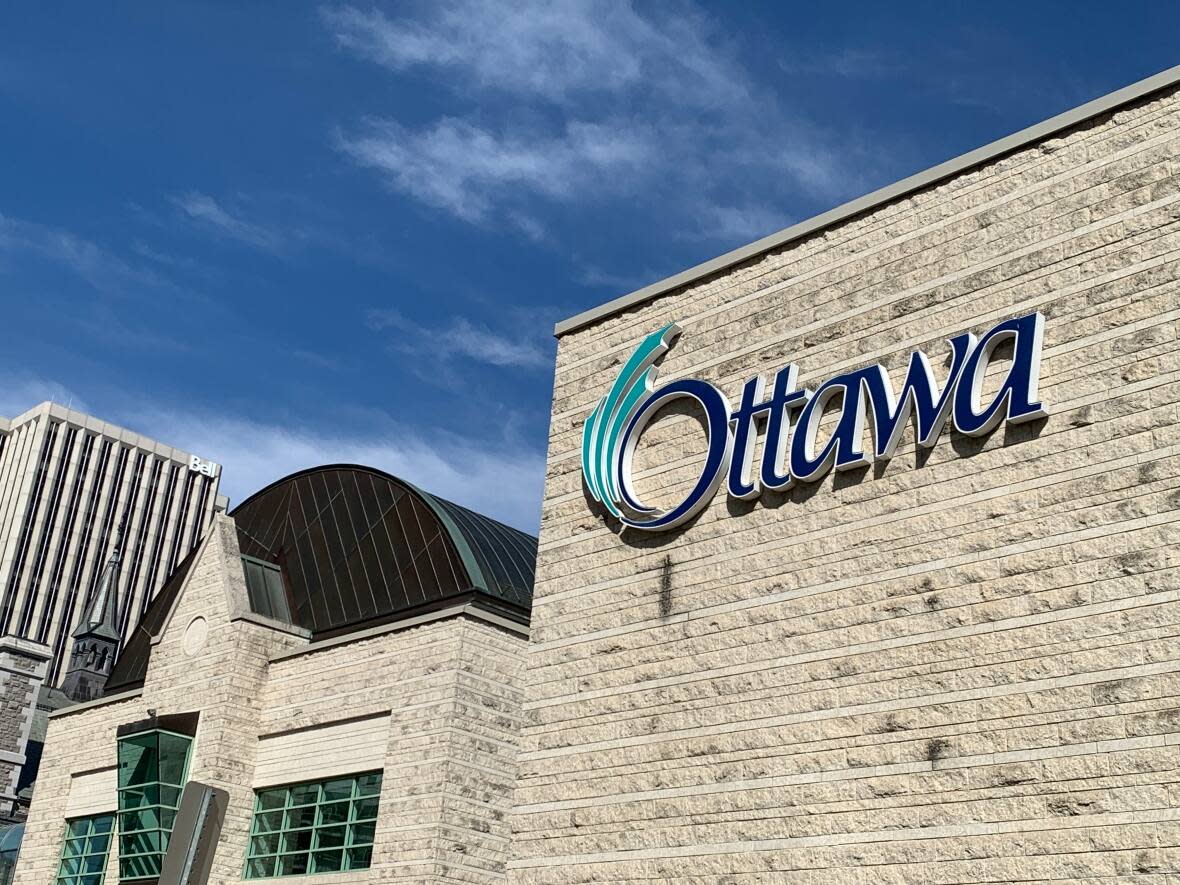
Ottawa's city council has passed the first budget of its term, one that hikes property taxes 2.5 per cent, freezes transit fares — while making transit free for kids under 12 — and increases funding to social service agencies and the climate change plan.
"I believe it is both fiscally responsible and compassionate," said Mayor Mark Sutcliffe at the start of Wednesday's budget discussions, which lasted more than five hours.
"I believe it is balanced and affordable. I believe it respects our residents and reflects our priorities."
Councillors unanimously approved the $5.5-billion budget, although some voted against or dissented on parts of the spending plan.
An owner of an average-assessed urban home will now see their taxes rise by $104, while a rural homeowner will pay an additional $85. Water and sewer rates will also rise, by an average of $38 for an urban homeowner or $10 for a rural homeowner.
Sutcliffe said that while he met with every councillor and was proud of the collaboration around the table, the process wasn't perfect because of the short time frame, as council was only sworn in last November.
A placeholder budget
The 2023 budget is something of a placeholder, in which most existing programs continued to be funded or even increased — spending on social service agencies, for example, increased more than $4 million — with more significant spending changes expected later this year.
In coming months, council will set their priorities for this term and the city will conduct a line-by-line review of program spending, something it hasn't done for 20 years.
Hanging over the entire budget is whether upper levels of government will come through with expected help.
"There's no question this is a tight budget," said Sutcliffe, echoing his words from a month ago when he introduced the plan.
"Without the appropriate level of support from our provincial and federal governments, we will have significant pressures on our finances next year and beyond, especially in areas like transit and infrastructure."
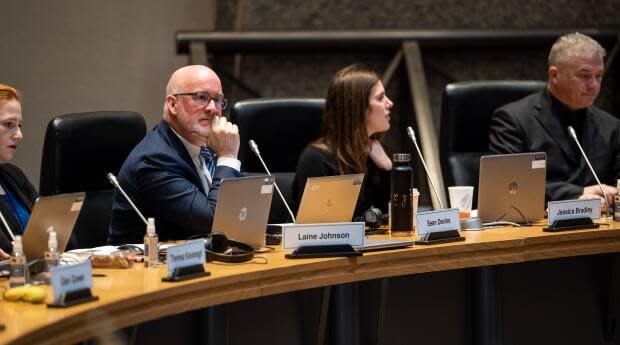
Protesters interrupt discussions
About 20 minutes after the meeting started, a handful of protesters walked into the council horseshoe, encouraging councillors to vote against the police budget, which calls for an additional $15 million this year.
The gross operating police budget sits at $401.2 million and includes money for hiring 25 new members and rolling out a new body camera project.
The city's social services department, in conjunction with police, is also working on a plan that would see social service workers respond to mental health calls instead of sworn officers.
Coun. Shawn Menard moved a motion to divert $500,000 from the police budget to accelerate that strategy, but it failed by a vote of 15-10.
"Mental health response teams save police money," said Menard. "Let's invest in it, let's do the right thing."
Eight councillors voted against the police budget as a whole, including Menard, Jessica Bradley, Sean Devine, Theresa Kavanagh, Rawlson King, Laine Johnson, Jeff Leiper, and Ariel Troster.
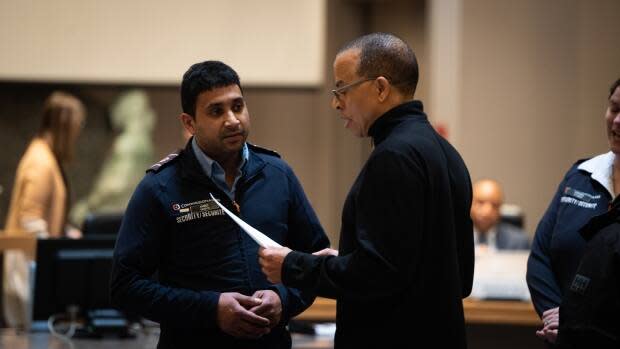
Free transit for kids, scaffolding gets short reprieve
Of all city departments, OC Transpo is perhaps facing the most budgetary pressure.
Ridership is still lower than pre-pandemic levels, and council directed it to freeze fares, raise the transit levy by only 2.5 per cent and not reduce service. It's counting on other levels of government to fill a $39-million gap built into the 2023 budget.
OC Transpo has found ways to save $47 million, including retiring old buses that weren't being used. But most of the savings are temporary, like putting off top-ups of certain capital funds and work related to the delayed LRT Stage 2.
At the same time, OC Transpo is increasing the operating budget by five per cent and plans to hire an additional 52 bus drivers.
The city also found more than $400,000 in savings this month from lower-than-expected diesel costs in early 2023. Some of that money will be used to fund a motion by Coun. Riley Brockington to allow children eight to 12 to ride for free.
The plan costs about $172,000 a year, in line with many other municipalities. Two councillors, George Darouze and David Hill, voted against it.
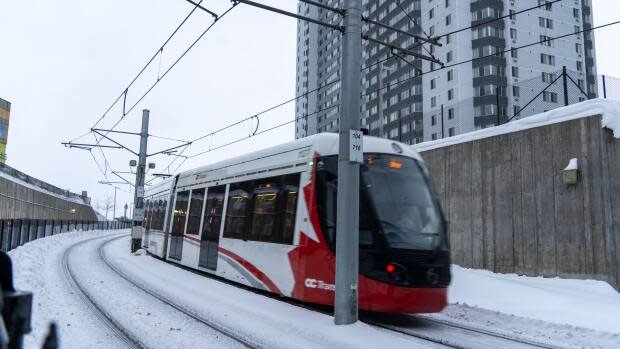
Council also approved a two-month reprieve for temporary scaffolding that protects transit riders from bad weather on the bus platforms at Hurdman and Tunney's Pasture stations.
Alta Vista Coun. Marty Carr, whose ward's residents use Hurdman station, moved a motion to keep the covered scaffolding at the busy transit hub until the end of April, at which point city staff would come back with a plan for a permanent solution.
"Those things are pretty ugly unfortunately, and we will do our best to find a solution," OC Transpo boss Renée Amilcar told council.
Leiper also wanted the scaffolding at Tunney's Pasture station in his ward to be kept until the end of April, although it's unclear that staff will be replacing the covering there.
The station acts as the Confederation Line's western terminus station right now, but the bus platform will be reduced significantly when the LRT western extension opens, which is expected in late 2026.
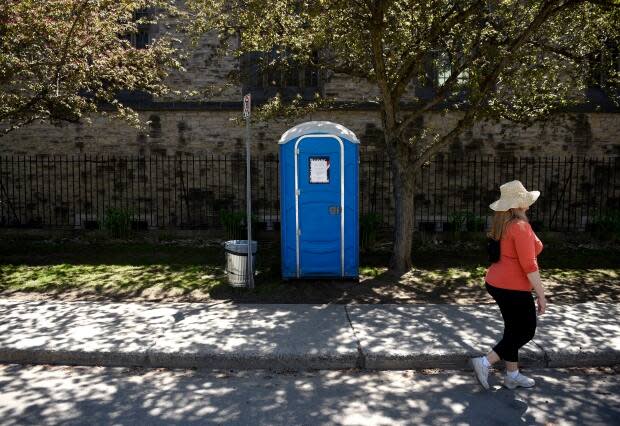
More toilets, wading pools
Ultimately, there were few changes to the draft budget.
A motion moved by Johnson to boost the amount of money the city puts into its surplus land fund from $1 million to $2.5 million was approved. The money from sales of the city's surplus land will go toward building affordable housing.
The city's affordable housing capital budget has been $15 million for years, and advocates at committee meetings during the budget process have argued more money is needed.
Council also approved Menard's motion to install 48 portable toilets across the city — two per ward — and to set up wading pools across the city on Canada Day and the August long weekend.
The $50,000 cost will come from the diesel fuel savings.


